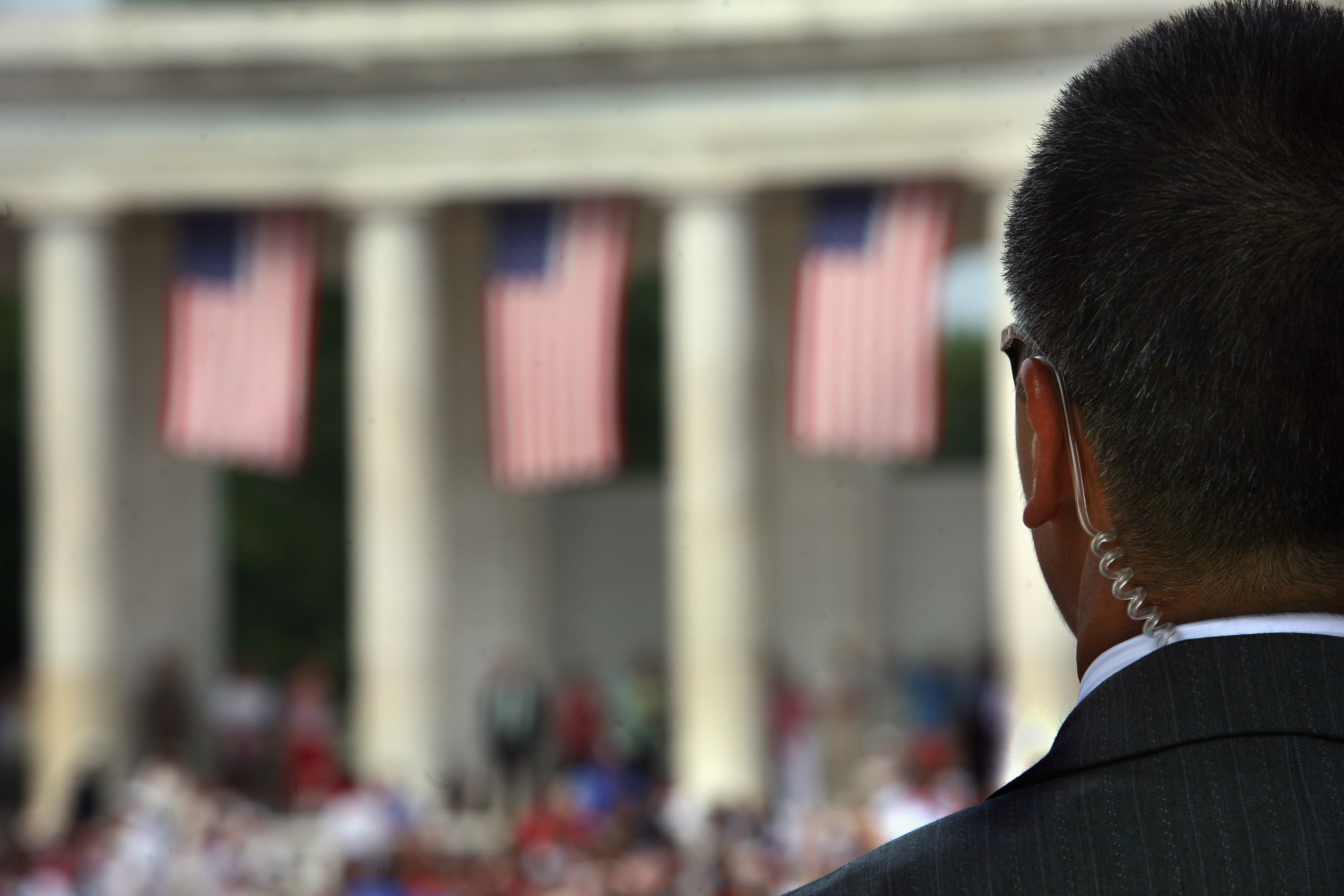3 ways Trump could save the Secret Service (and taxpayers) a lot of money


A free daily email with the biggest news stories of the day – and the best features from TheWeek.com
You are now subscribed
Your newsletter sign-up was successful
The Secret Service is obligated to protect the president and vice president and offer protection to their immediate families, but President Trump isn't obligated to drain the Secret Service coffers, as USA Today reported he is earlier this week. More than 1,000 agents have already hit their yearly caps on salary and overtime protecting Trump and his 18-member family as they travel the world on business and leisure, Secret Service Director Randolph "Tex" Alles said. On Wednesday, USA Today followed up with former agents and ethics experts, and they pointed to at least three big things Trump could do to ease the Secret Service's financial burden.
First: Spend more time at the White House. Trump's seven presidential visits to Mar-a-Lago, five stays at his New Jersey golf club, and one trip to his Trump Tower home have cost the Secret Service dearly, even if they're inexpensive for Trump himself. Trump isn't legally allowed to comp the agents' rooms, former Secret Service Director W. Ralph Basham tells USA Today, so maintaining a presence at his luxury properties is expensive. Second, if Trump needs to leave Washington, he could go to Camp David, as other presidents have since the 1940s, to save the Secret Service money and stress. Each trip to Mar-a-Lago, for example, costs taxpayers an estimated $3 million.
Finally, while Trump cannot pay for his Secret Service protection, he can ask his adult children to decline theirs and hire private security. Eric and Don Jr.'s business travels for Trump's company, and Ivanka and Tiffany's vacations have cost taxpayers at least several hundreds of thousands of dollars. "I don't see any way for the government to avoid these security expenditures, unless the family declines the protection services," said Scott Amey, chief counsel at the Project on Government Oversight. Not everyone thinks that's fair. "At the end of the day, that's not an issue anybody should be telling a president or his family how to live their lives," said former Secret Service executive Arnette Heintze.
The Week
Escape your echo chamber. Get the facts behind the news, plus analysis from multiple perspectives.

Sign up for The Week's Free Newsletters
From our morning news briefing to a weekly Good News Newsletter, get the best of The Week delivered directly to your inbox.
From our morning news briefing to a weekly Good News Newsletter, get the best of The Week delivered directly to your inbox.
But the ethicists are on board. "You've got this mentality that they're somehow nobility and entitled to have the American people pay for their vacations and their boondoggles and fun, when in reality it's their responsibility to serve us," Walter Shaub, recent head of the Office of Government Ethics, tells USA Today. "Welcome to government service." You can read more ideas at USA Today.
A free daily email with the biggest news stories of the day – and the best features from TheWeek.com
Peter has worked as a news and culture writer and editor at The Week since the site's launch in 2008. He covers politics, world affairs, religion and cultural currents. His journalism career began as a copy editor at a financial newswire and has included editorial positions at The New York Times Magazine, Facts on File, and Oregon State University.
-
 The ‘ravenous’ demand for Cornish minerals
The ‘ravenous’ demand for Cornish mineralsUnder the Radar Growing need for critical minerals to power tech has intensified ‘appetite’ for lithium, which could be a ‘huge boon’ for local economy
-
 Why are election experts taking Trump’s midterm threats seriously?
Why are election experts taking Trump’s midterm threats seriously?IN THE SPOTLIGHT As the president muses about polling place deployments and a centralized electoral system aimed at one-party control, lawmakers are taking this administration at its word
-
 ‘Restaurateurs have become millionaires’
‘Restaurateurs have become millionaires’Instant Opinion Opinion, comment and editorials of the day
-
 ‘One Battle After Another’ wins Critics Choice honors
‘One Battle After Another’ wins Critics Choice honorsSpeed Read Paul Thomas Anderson’s latest film, which stars Leonardo DiCaprio, won best picture at the 31st Critics Choice Awards
-
 Son arrested over killing of Rob and Michele Reiner
Son arrested over killing of Rob and Michele ReinerSpeed Read Nick, the 32-year-old son of Hollywood director Rob Reiner, has been booked for the murder of his parents
-
 Rob Reiner, wife dead in ‘apparent homicide’
Rob Reiner, wife dead in ‘apparent homicide’speed read The Reiners, found in their Los Angeles home, ‘had injuries consistent with being stabbed’
-
 Hungary’s Krasznahorkai wins Nobel for literature
Hungary’s Krasznahorkai wins Nobel for literatureSpeed Read László Krasznahorkai is the author of acclaimed novels like ‘The Melancholy of Resistance’ and ‘Satantango’
-
 Primatologist Jane Goodall dies at 91
Primatologist Jane Goodall dies at 91Speed Read She rose to fame following her groundbreaking field research with chimpanzees
-
 Florida erases rainbow crosswalk at Pulse nightclub
Florida erases rainbow crosswalk at Pulse nightclubSpeed Read The colorful crosswalk was outside the former LGBTQ nightclub where 49 people were killed in a 2016 shooting
-
 Trump says Smithsonian too focused on slavery's ills
Trump says Smithsonian too focused on slavery's illsSpeed Read The president would prefer the museum to highlight 'success,' 'brightness' and 'the future'
-
 Trump to host Kennedy Honors for Kiss, Stallone
Trump to host Kennedy Honors for Kiss, StalloneSpeed Read Actor Sylvester Stallone and the glam-rock band Kiss were among those named as this year's inductees
